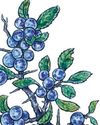Once collected by the masses, the discovery of a particularly intricate seashell still inspires delight. John Wright uncovers their wonders and many uses

CAN I take this rock/log/seashell/ dead mole home?’ was once a repeated question on family walks and, unless this constituted grand larceny or ecological disaster, the answer was always ‘Yes, but you have to carry the damn thing yourself’.
This not only instilled a useful sense of self-reliance in the young Wrights, but also avoided my carrying 30lb boulders sporting a tiny fossil or my pockets filling with wet and strikingly aromatic seashells.
Children truly love seashells and the finer discoveries of 100 seashore walks live on still in a huge glass jar in our bathroom. Adults, however, take a regrettable ‘seen it all before’ stance and, when one is passed to them by a small hand, merely remark how pretty it is. They have nothing more to say.
It wasn’t always so. Before the First World War, collecting and studying seashells was a pastime for the general public and a vocation for both professional collector and taxonomist. The Channel Islands, for example, were—and still are—excellent hunting grounds for seashells and one conchologist reported seeing 200 people collecting them on the beaches of Herm.
Bu hikaye Country Life UK dergisinin July 10, 2019 sayısından alınmıştır.
Start your 7-day Magzter GOLD free trial to access thousands of curated premium stories, and 9,000+ magazines and newspapers.
Already a subscriber ? Giriş Yap
Bu hikaye Country Life UK dergisinin July 10, 2019 sayısından alınmıştır.
Start your 7-day Magzter GOLD free trial to access thousands of curated premium stories, and 9,000+ magazines and newspapers.
Already a subscriber? Giriş Yap

Kitchen garden cook - Apples
'Sweet and crisp, apples are the epitome of autumn flavour'

The original Mr Rochester
Three classic houses in North Yorkshire have come to the market; the owner of one inspired Charlotte Brontë to write Jane Eyre

Get it write
Desks, once akin to instruments of torture for scribes, have become cherished repositories of memories and secrets. Matthew Dennison charts their evolution

'Sloes hath ben my food'
A possible paint for the Picts and a definite culprit in tea fraud, the cheek-suckingly sour sloe's spiritual home is indisputably in gin, says John Wright

Souvenirs of greatness
FOR many years, some large boxes have been stored and forgotten in the dark recesses of the garage. Unpacked last week, the contents turned out to be pots: some, perhaps, nearing a century old—dense terracotta, of interesting provenance.

Plants for plants' sake
The garden at Hergest Croft, Herefordshire The home of Edward Banks The Banks family is synonymous with an extraordinary collection of trees and shrubs, many of which are presents from distinguished friends, garnered over two centuries. Be prepared to be amazed, says Charles Quest-Ritson

Capturing the castle
Seventy years after Christian Dior’s last fashion show in Scotland, the brand returned under creative director Maria Grazia Chiuri for a celebratory event honouring local craftsmanship, the beauty of the land and the Auld Alliance, explains Kim Parker

Nature's own cathedral
Our tallest native tree 'most lovely of all', the stately beech creates a shaded environment that few plants can survive. John Lewis-Stempel ventures into the enchanted woods

All that money could buy
A new book explores the lost riches of London's grand houses. Its author, Steven Brindle, looks at the residences of plutocrats built by the nouveaux riches of the late-Victorian and Edwardian ages

In with the old
Diamonds are meant to sparkle in candlelight, but many now gather dust in jewellery boxes. To wear them today, we may need to reimagine them, as Hetty Lintell discovers with her grandmother's jewellery